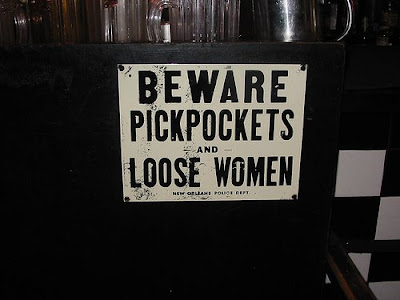George Carlin & The Paradox of Life
 George Carlin passed away on Sunday at the seemingly young age of 71. It's hard to tell whether 71 is young for someone like Carlin, whose humor in the past decade had certainly grown crust on an already razor sharp edge. His death is not surprising in it's manner (heart failure, which he famously joked about in regard to previous episodes), but in its timing. In the midst of what is likely to be the most important election seasons in American history, Carlin could be expected to discourse profoundly, yet concisely about the aspects that, only when put to voice, are significantly obvious. On the heels of the national outpouring of condolence and ceremony for Tim Russert, don't expect the same type for Mr. Carlin, who is equally deserving of such significant respect from the common man.
George Carlin passed away on Sunday at the seemingly young age of 71. It's hard to tell whether 71 is young for someone like Carlin, whose humor in the past decade had certainly grown crust on an already razor sharp edge. His death is not surprising in it's manner (heart failure, which he famously joked about in regard to previous episodes), but in its timing. In the midst of what is likely to be the most important election seasons in American history, Carlin could be expected to discourse profoundly, yet concisely about the aspects that, only when put to voice, are significantly obvious. On the heels of the national outpouring of condolence and ceremony for Tim Russert, don't expect the same type for Mr. Carlin, who is equally deserving of such significant respect from the common man.George Carlin spoke to us in a way that made you understand that you were not only allowed to, but you were supposed to think; to color outside the lines with whatever you chose, and to question authority and demand answers. Carlin held himself and everyone in the world accountable for their thoughts, but made sure you knew that you were allowed to think them.
Much like his social contemporary and fellow comedic titan, Richard Pryor, Carlin was privvy to the thoughts and feelings of the everyday man, and was unafraid to set an expample by using his own experience and observations as fodder, a foundation or a jump-off point for a clearer context. But in my mind, Pryor and Carlin bookended each other in terms of the context of their humor; whereas Richard's humor was rooted in his experiences as a Black individual who observed life from that vantage point, George's humor was rooted in his experience as a White individual with a different class background. However, the conclusions they drew from their points of view were often written on the same page emotionally, and provided equally descriptive and complentary commentary to the discussion on American culture.
Aside from Bill Cosby, Richard was arguably the most personal comedian in existence. Also aside from Bill Cosby, George was arguably the most observant. Together, yet in their own circles of existence, they articulated the subconcious fears of the everyday American and made us understand. I would say that only Bill Cosby has consistently and most successfully been able to dominate in this and other aspects of humor in general, but where Bill draws a line at offensive references and topics, Richard and George made it a personal invitation to come along. That way, they were able to discuss issues that effected even those most out of touch with or rejected from mainstream society.
As a black man, I found that Carlin's humor and observations were beyond acceptable; they were easily relateable. His humor acknowledged the existense of race descriptions, but much like other categories and beliefs in society, decidedly rejected them. People are human beings, with significant flaws and few redeeming qualities, in his opinion, but not beyond redemption if one chose to think in a critical manner. It was, in fact, the flaws that made people interesting in the first place and the breakdown of societal structures and barriers was his mission. "Entropy excites me," he once said in one of his comic routines. His life had many examples of that, on and off-stage, from his iconic battles with the FCC to his humbling treatments for substance abuse. Like Pryor, he had the ability to feed off of his own hubris and turn it into gold. But where Pryor built his humor from his personal experiences, Carlin was famous for his somewhat obtuse subjectivity and (very) critcal observations. Where would Jerry Seinfeld be without the guiding principles of Carlin?
I sought a quote that I could reference that could represent the comedic genius of George Carlin, but there is much too much to choose from. However, I did find something that can easily be an epilogue to his life that he would deem fitting, as he had wrote it on the event of his own wife's passing. Ultimately, it reminds you once again to practice critical thought, and it serves as a strong reference point for anyone who has sought meaning in life and personal loss. Like Mr. Pryor, the loss of Mr. Carlin to me feels quite personal.
UPDATE:
The reference above to the linked epilogue was strenuously disavowed by George Carlin himself, which is not surprising given his distinct distaste for anything reverential or spiritual. Thanks to anonymous for the tip, though I would encourage you to not be so anonymous next time; I'm not a hater when I make mistakes or when mistakes are kindly pointed out, so reprisals are limited. Come again! >;)


Comments
~mehmattski
You can fine more info on Snopes at
http://www.snopes.com/politics/soapbox/paradox.asp or by googling "George Carlin" and "Paradox", which is how I found both the Snopes page and your blog.